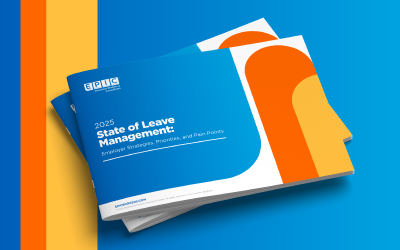Quick Facts
- Under the Uniformed Services Employment and Reemployment Rights Act (USERRA), employees requesting leave for service in the uniformed services are entitled to certain job protections and rights.
- Employers must provide benefits continuation that either follows the USERRA requirements or is more generous than minimum USERRA requirements.
- The Department of Labor (DOL) provides resources to assist with USERRA administration on its website.
Background
Under USERRA, employees requesting leave for service in the uniformed services are entitled to certain job protections, including benefit continuation and reinstatement rights.
USERRA applies broadly to employers of all sizes, both public and private, with no exceptions.
Unlike for Family Medical Leave Act (FMLA)-protected leave, there are no employee eligibility requirements (e.g., length of service, minimum hours worked) under USERRA. Employees are generally eligible for job protections, health plan benefit continuation, and job/benefit reinstatement under USERRA regardless of how long or how many hours they have worked for the employer.
Benefit Continuation & Reinstatement
The employer may have a special leave policy extending coverage eligibility for a period of time during military leave, but if not, it would be necessary to at least follow USERRA requirements.
For leave protected under USERRA, the employer must give the employee the option to continue group health plan benefits for up to 24 months if coverage is in place when the leave of absence under USERRA commences. If an employee previously waived coverage, or the employee is still in a waiting period (i.e., coverage is not yet effective), there would be no USERRA continuation rights during the leave of absence. Covered employees may continue coverage for up to 24 months for themselves, as well as any covered spouse and dependents, but the spouse and dependents do not have independent election rights; they can continue coverage under USERRA only so long as coverage is continued by the employee. NOTE: Even if the spouse and dependents do not have independent continuation rights under USERRA, they may qualify for independent coverage rights under COBRA.
The definition of a “health plan” for this purpose is broad, including major medical plans, as well as other health plans such as health Flexible Spending Accounts (FSAs), Health Reimbursement Arrangements (HRAs), dental, and vision. Coverage continuation is not required for non-health benefits.
- The employer responsibility for contributions is set forth in 38 United States Code (USC) §4317(a) and differs a bit depending upon the expected length of the leave:
- If the period of uniformed service is expected to be fewer than 31 days, the employer must continue to pay its share of premiums.
- For periods of uniformed service expected to be 31 or greater days, the employee may be required to pay up to 102% of the premium (similar to Consolidated Omnibus Budget Reconciliation Act (COBRA) coverage) as soon as the employee is out on leave.
USERRA continuation coverage may be terminated if the employee fails to make payment (nonpayment), or if the employee fails to return to work or apply for reemployment within the timeframes specified under USERRA. Coverage may also be terminated if the employee is dishonorably discharged from the uniformed services.
USERRA does not specify a minimum premium payment period or require a particular method of paying USERRA premiums. USERRA regulations indicate that employers “may develop reasonable procedures for payment, consistent with the terms of the plan.” It may make sense to mirror COBRA payment requirements (e.g., 30-day grace period). However, while USERRA regulations permit plans to adopt reasonable rules allowing cancellation of coverage for nonpayment, such rules must still be consistent with USERRA’s requirements (e.g., exceptions for impossibility, unreasonableness, and military necessity), and flexibility in enforcement may be required. If coverage is terminated due to nonpayment, there would be no further right to continue coverage under COBRA so long as the terms for payment are at least as generous as those under COBRA continuation requirements.
USERRA’s health plan reinstatement rights require that the employee be allowed to re-enroll upon return from leave if coverage was lost during the leave. The employee should be allowed to enroll in the plan immediately upon becoming re-employed rather than being subject to a new waiting period.
Continuation with COBRA
A loss of eligibility due to the reduction in hours while the employee is out on leave for uniformed services likely also triggers a COBRA continuation right (if an employer with 20 or greater employees is involved). The reduction in hours would trigger an 18-month COBRA continuation period for the covered employee, as well as any covered spouse or dependent. For such continuation coverage, the plan is permitted to charge up to 102% of the applicable premium.
For plans subject to both COBRA and USERRA, the continuation rights available under each will run concurrently, but the plan will need to comply with the law providing the most benefit to the employee. Since USERRA offers up to 24 months of continuation coverage, which will generally be more generous than what is required under COBRA, there would be no further COBRA continuation right following exhaustion of the 24 months required under USERRA unless a spouse or dependent has a second qualifying event extending the COBRA maximum coverage period to 36 months.
Notice Requirements
Employers are required to provide employees with information about the right to continue benefits during a leave due to uniformed services, and/or to reinstate upon return. This requirement is commonly satisfied by hanging a USERRA poster in a common area (where other employee notices are customarily placed). It would also be possible, but not required, to include information in an annual notice or new hire packet.
In addition to the USERRA poster, benefits continuation and reinstatement rights should be included in the summary plan description (SPD).
When an individual requests leave for uniformed services, USERRA does not require a specific individual notice, but the general recommendation is for employers to provide a notice outlining the employee’s rights and responsibilities for continuation coverage and reinstatement (similar to a COBRA election notice). There is flexibility for the employer to determine what processes and time frames apply, but they should be coordinated with the applicable carrier(s) (or stop-loss vendors). Providing a notice with details of what coverage is available, as well as how the employee can elect and pay for coverage, will make it easier for the employer to enforce the employer’s procedures and deadlines.
For those individuals who qualify for USERRA and COBRA upon taking leave for uniform services, the conservative approach is to design procedures and materials to comply with both USERRA and COBRA. A plan’s offer of continuation coverage when an employee loses coverage due to the commencement of a period of uniformed service should comply with both COBRA and USERRA. Any communications and forms should clarify that when both COBRA and USERRA apply, an election for continuation coverage will be an election to take concurrent COBRA/USERRA coverage, and whichever provides the greater benefit will apply. One possible method is to attach a USERRA continuation notice that can be attached to the front of the COBRA election notice when applicable. The USERRA continuation notice should: (i) explain the protections provided by USERRA; (ii) clarify that notices and elections in connection with the plan are made under both COBRA and USERRA; and (iii) notify recipients of the plan’s policies and procedures for administering USERRA coverage and how they may differ from the plan’s COBRA policies and procedures.
Coordination with §4980H – Look-Back Measurement Method
For applicable large employers (50 or greater full-time equivalents [FTEs]), the use of the look-back measurement method may impact eligibility for benefits for an employee who requires leave due to uniformed services. Depending upon the plan eligibility rules, the employer may continue to treat an employee on leave as eligible at least through the end of the current stability period. When that is the case, the employee may be permitted to continue active coverage, including the employer contribution, through at least the end of the current plan year. Then any USERRA or COBRA continuation rights would not be triggered until there is an actual loss of eligibility (e.g., upon plan renewal if the employee fails to average full-time hours of service during the measurement period).
In addition, if the employer is using the look-back measurement method, and the break in service (e.g., leave for uniformed services) is fewer than 13 weeks, the employee returns as a continuing employee and the measurement and stability periods continue as if the employee had never left. Normally, no hours of service are credited during an unpaid break in service, but there are special rules that apply for a leave of absence due to FMLA, USERRA or jury duty (“special unpaid leave”). If the leave was “special unpaid leave,” and the employee is considered a continuing employee, the employer is required to either exclude the leave or impute hours for the leave when measuring hours to determine full-time status.
Coordination with TRICARE and Veterans’ Administration (VA) Benefits
Employees on leave for uniform services may also qualify for TRICARE (the uniformed services healthcare program) and VA benefits. Employees should generally have the choice to maintain the employer’s group health plan coverage alongside TRICARE or VA benefits if desired (dual coverage). However, keep in mind that enrollment in TRICARE or use of VA benefits may impact health savings account (HSA) eligibility.
Resources
The Department of Labor (DOL) has created and made available resources to assist employers and employees in managing USERRA benefits.
EPIC Employee Benefits Compliance Services
For further information on this or any other topics, please contact your EPIC consulting team.
Learn About Our Employee Benefits Compliance Services
EPIC offers this material for general information only. EPIC does not intend this material to be, nor may any person receiving this information construe or rely on this material as, tax or legal advice. The matters addressed in this document and any related discussions or correspondence should be reviewed and discussed with legal counsel prior to acting or relying on these materials.
DOWNLOADABLE RESOURCES
THE 2022 COMPLIANCE WEBINAR SERIES IS HERE!
Sign up for our Compliance Matters Newsletter
You’ll receive our monthly newsletter, as well as special compliance alerts and invitations to our compliance webinars
Related Content
Products
Employee Benefits Consulting
Our dedicated benefits team is focused on delivering better outcomes – to both your benefits program and ...
Products
Compliance
We provide comprehensive consulting services and in-depth education regarding the ever-changing employee ...
Industries
Healthcare
Our healthcare practice is known around the world for its expertise and passion in delivering exceptional ...


